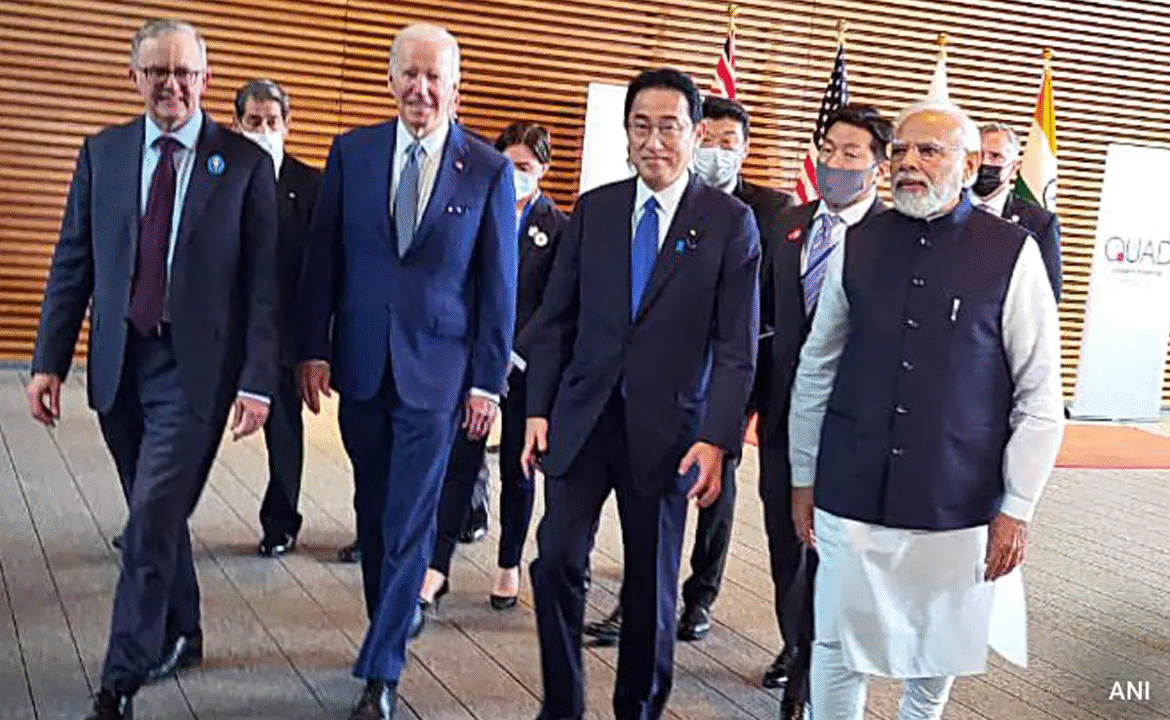AI Generated Summary
- India’s invitation was not a gesture—it was a recognition that no serious global summit can afford to bypass the world’s largest democracy, a linchpin of the global economy, and a bridge to the future.
- In 2025, global power dynamics, economic realities, and strategic imperatives have shifted so dramatically that to hold a G7 summit without India would have been not just shortsighted, but fundamentally disconnected from the world as it is.
- India is a vital link in this region, both as a counterbalance to China and as a partner in ensuring regional stability and open sea lanes.
The G7 summit, once a club of the world’s richest democracies, now finds itself at a crossroads. In 2025, global power dynamics, economic realities, and strategic imperatives have shifted so dramatically that to hold a G7 summit without India would have been not just shortsighted, but fundamentally disconnected from the world as it is.
India: Indispensable to Global Conversations
India is no longer a peripheral player in international affairs. It is the world’s fifth-largest economy, having surpassed several G7 members in GDP, and is the most populous country on the planet. Its presence is not a courtesy; it is a necessity. India sits at the heart of global supply chains, from critical minerals to pharmaceuticals and digital infrastructure. Any serious discussion about economic resilience, energy security, or the digital transition—core G7 priorities this year—would be incomplete without India at the table.
Strategic and Geopolitical Realities
The Indo-Pacific has become the world’s geopolitical center of gravity. India is a vital link in this region, both as a counterbalance to China and as a partner in ensuring regional stability and open sea lanes. G7 members, especially the US, UK, France, Germany, and Japan, are deepening strategic partnerships with India to address shared security challenges and to access economic opportunities in the region. Excluding India would have rendered any G7 conversation about Indo-Pacific security or global governance hollow and irrelevant.
A Voice for the Global South
India is not just a bridge between East and West; it is the most credible voice for the Global South. As the G7 seeks to engage emerging economies and address global challenges—climate change, digital divides, and sustainable development—India’s participation is essential for legitimacy and effectiveness. Without India, the G7 would risk appearing as an exclusive club, out of touch with the aspirations of billions in the developing world.
Economic and Technological Imperatives
India’s economic dynamism is unmatched among large economies. It is projected to be one of the fastest-growing economies globally, making it a critical market and partner for G7 countries4. Its leadership in digital innovation, renewable energy, and technology transfer offers mutual benefits and opportunities for collaboration. The G7’s own priorities—energy transition, digital futures, resilient supply chains—are all areas where India’s involvement is not just beneficial, but essential.
Diplomacy and the Reality of Global Leadership
Diplomacy is not about engaging only with friends or those who share every value; it is about advancing interests and defending values in a complex world. Despite recent diplomatic tensions—such as the fallout between Canada and India—other G7 members recognized that India’s exclusion would have undermined the summit’s credibility and effectiveness. As experts have noted, Canada was under “strong push” from the other G6 nations to ensure India’s presence, recognizing that global leadership today requires building coalitions with reliable partners, even amid disagreements.
The G7’s Relevance Hinges on Inclusion
To convene a G7 summit in 2025 without India would have been to ignore the realities of global power, economics, and diplomacy. It would have rendered the summit’s outcomes incomplete, its legitimacy questionable, and its ambitions for global leadership hollow. India’s invitation was not a gesture—it was a recognition that no serious global summit can afford to bypass the world’s largest democracy, a linchpin of the global economy, and a bridge to the future. The G7, if it is to remain relevant, must reflect the world as it is—not as it once was.




